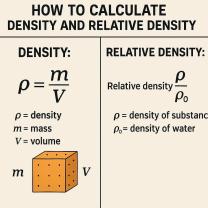What grants are available to college students?
There are various grants available to college students to help offset the cost of higher education. Grants are a form of financial aid that typically do not need to be repaid. The availability and eligibility criteria for grants can vary by country, state, institution, and the specific program. Here are some common types of grants for college students:
Federal Pell Grant: In the United States, the Federal Pell Grant is a need-based grant provided by the federal government to undergraduate students. Eligibility is determined by the Free Application for Federal Student Aid (FAFSA) based on financial need.
Federal Supplemental Educational Opportunity Grant (FSEOG): FSEOG is another federal grant program for undergraduate students with exceptional financial need. Priority is given to Pell Grant recipients.
State Grants: Many U.S. states offer their own grant programs to residents pursuing higher education. These grants are typically based on residency and financial need.
Institutional Grants: Colleges and universities often provide their own grants to eligible students. These grants may be need-based or awarded on academic merit.
TEACH Grant: The Teacher Education Assistance for College and Higher Education (TEACH) Grant is a federal program that provides grants to students who plan to become teachers in high-need fields in low-income schools. There is a service obligation associated with this grant.
Iraq and Afghanistan Service Grants: These grants are available to students who had a parent or guardian die as a result of military service in Iraq or Afghanistan after the events of 9/11.
SMART Grant: The National Science and Mathematics Access to Retain Talent (SMART) Grant is for students pursuing degrees in science, technology, engineering, mathematics (STEM), or certain foreign languages. It's a federal program for third and fourth-year undergraduate students.
Federal Work-Study: While not a grant, the Federal Work-Study program provides part-time jobs for undergraduate students with financial need. Students earn money to help pay for education expenses.
Grants for Specific Demographics: There are specialized grant programs for certain demographics, such as grants for women, minorities, first-generation college students, and veterans.
Research Grants: Some students pursuing research in specific fields may be eligible for research grants from organizations, foundations, or the government.
Study Abroad Grants: If you plan to study abroad, you can explore grants and scholarships designed for international study programs.
Career-Specific Grants: Certain careers, like nursing or social work, have grant programs available to students pursuing those fields.
It's important to note that eligibility for grants is often contingent on financial need, academic performance, field of study, and other factors. To apply for most federal and state grants in the United States, you'll need to complete the FAFSA. Additionally, each college or university may have its own application process for institutional grants. Be sure to research the specific grants that are available in your region and for your educational goals, and check with the financial aid office at your college for guidance on applying for grants.
Grants Available to College Students: Navigating Financial Aid
College grants are a type of financial aid that does not need to be repaid. They are offered by a variety of sources, including the federal government, state governments, private organizations, and colleges and universities themselves.
When applying for college grants, it is important to start by researching the different types of grants that are available and the eligibility requirements. You can find information about college grants on the websites of the Free Application for Federal Student Aid (FAFSA), the Federal Student Aid Information Center, and your state's higher education agency.
Types of Grants and Scholarships for Higher Education
There are many different types of grants and scholarships available to college students. Some of the most common types include:
- Federal Pell Grants: Federal Pell Grants are awarded to undergraduate students who demonstrate financial need. Pell Grants are the largest source of federal financial aid for college students.
- Federal Supplemental Educational Opportunity Grants (FSEOG): FSEOGs are awarded to undergraduate students who demonstrate exceptional financial need. FSEOGs are awarded on a first-come, first-served basis, so it is important to apply early.
- State grants: Many states offer grants to their residents who are attending college. State grant eligibility requirements vary from state to state, so be sure to check with your state's higher education agency for more information.
- Institutional grants: Colleges and universities often offer their own grants to students. Institutional grant eligibility requirements vary from school to school, so be sure to check with the financial aid office at your college or university for more information.
- Private grants: There are many private organizations that offer grants to college students. Private grant eligibility requirements vary from organization to organization, so be sure to do your research to find grants that you are qualified for.
Eligibility, Application, and Awarding of College Grants
Eligibility requirements for college grants vary depending on the type of grant and the source of the funding. However, most grants require students to demonstrate financial need and to be enrolled in an accredited college or university.
To apply for college grants, you will typically need to complete a FAFSA. The FAFSA is a single application that is used to apply for federal and state financial aid. You may also need to complete additional applications for specific grants.
College grants are awarded on a variety of factors, including financial need, academic merit, and specific criteria set by the grant provider. For example, some grants are awarded to students who are pursuing a specific degree program or who are from a particular demographic group.
Utilizing Grants to Make College Education More Affordable
College grants can help to make college education more affordable for students. By applying for and receiving grants, students can reduce the amount of money they need to borrow in student loans.
To maximize your chances of receiving college grants, be sure to start researching and applying early. Also, be sure to complete all of the required applications accurately and on time.
Personal Stories of College Students Who Benefited from Grants
Here are a few personal stories of college students who benefited from grants:
- "I was able to attend college thanks to the Pell Grant. Without the Pell Grant, I would not have been able to afford to go to college. I am so grateful for the Pell Grant program."
- "I received a grant from my state government that helped me to pay for my college tuition. I am so grateful for the support of my state government. I am now working as a teacher, and I am able to give back to my community."
- "I received a grant from a private foundation that helped me to pay for my college expenses. I am so grateful for the generosity of the foundation. I am now working as a doctor, and I am able to help others."
College grants can make a big difference in the lives of students. If you are considering attending college, be sure to research the different types of grants that are available and apply for the ones that you are qualified for.












